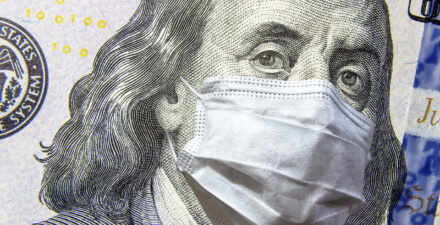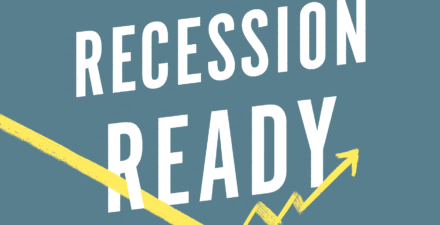Brad DeLong: Worthy reads on equitable growth, March 14-20, 2020
Worthy reads from Equitable Growth:
- Equitable Growth publishes “In Joint Letter, Equitable Growth Asks Congress to ‘Stanch Economic Bleeding’ in Covid-19 Legislative Package:” Heather Boushey, the president and CEO of the Washington Center for Equitable Growth, along with the leaders of three other Washington-based economic think tanks—the Center for American Progress, the Economic Policy Institute, and the Roosevelt Institute—told U.S. congressional leaders in a letter today that legislation to “stanch the economic bleeding” caused by public health actions to contain the COVID-19 virus must include not only direct cash payments but also substantial increases in programs for families most directly affected as well as other steps to support people, businesses, and the overall U.S. economy. With economic activity across the nation shutting down, the four think tank leaders said that workers, families, and small businesses will continue to suffer significant losses. They need to be compensated to cushion the blow as well as limit the economic impact of the business slowdown. The organizations called for Congress to provide the following: Direct cash payments to provide an economic lifeline to families. Dramatically expanded Unemployment Insurance and Supplemental Nutrition Assistance Program benefits. Emergency actions to stem evictions, address homelessness, and prevent crowding of shelters. Student debt relief to prevent any resources intended to provide economic stimulus from being absorbed by debt servicing of student loans. Financial aid to states, including their health programs, which will be under immense strain as the needs of their residents grow.”
- My take on “Bloomberg-BNN Talklng Points on Economic Situation:” “A huge negative supply shock. But as people lose their jobs as a result of this negative supply shock, it is going to turn into a demand shock. And we also have a very powerful distribution shock as well. We want to offset the demand shock without overdoing it. We want to let the prices of goods and services in high demand rise to encourage people to produce more of them. Hence an interesting policy problem: The right inflation rate for the next 3 months is not 2 percent … The right monetary policy is … stimulative, but uncertain … The right fiscal policy is … stimulative, but uncertain … The right distribution policy is … massive boost to unemployment insurance: 100 percent replacement for those who lose their jobs. The right lending policy is … lend enough on easy enough terms that businesses stay afloat, but not enough that stockholders make out like bandits—they are risk bearers, aren’t they? Handsomely paid. Now is when they earn the money they earn in normal times.”
Worthy reads not from Equitable Growth:
- No. It does not seem that the Executive Branch headed by President Donald Trump is acting very competently. Read David Dayen. “Unsanitized: The Ghost of Bailouts Past and Means Testing Present,” in which he writes: “Here’s a little thing that hasn’t been reported about the Treasury Department’s “term sheet” for the big coronavirus economic response package. If you take a look at the metadata of that document, you’ll see that it has the title “MEMORANDUM FOR SECRETARY PAULSON.” Hank Paulson, of course, was the Republican Treasury Secretary during the last crisis, not this one … “This cut and paste job is evidence that they are literally working off of the 2008 baseline that led to a bipartisan bailout of the banks and left Main Street and the broader real economy behind,” says David Segal, executive director of the Demand Progress Education Fund … The Treasury term sheet got adopted in Mitch McConnell’s bill language released yesterday afternoon. The bailouts for the airline industry ($50 billion) and everything else ($150 billion)? Yep, although McConnell added $8 billion for cargo air carriers. There are caps on executive compensation, as Treasury asked for, but also a kind of equity stake with government participation if the value rises. Small businesses get $300 billion in “interruption loans” in both Treasury and McConnell’s imagining; Treasury wanted this to go toward eight weeks of payroll, but McConnell allows rent, mortgage, utilities, or “other debt,” though there are incentives for sustaining employee compensation until the end of June. The temporary use of the Exchange Stabilization Fund to guarantee money markets is also the same. After all that (and a lot more) for businesses, the public gets—a $1,200 check. And they don’t go to everyone, phasing in at half price for those without income tax liability (as many as 75 million people, an unconscionable attack on the poor) and phasing out starting at those earning $75,000 per year, with nothing for those above $99,000. But that threshold doesn’t reflect anyone’s current, real-world status. Indeed, it’s likely to be based on 2018 tax returns … Nobody in the leadership of either party has internalized that two year-old figures for determining means testing are completely obsolete.”



